Childhood
Posted on 18 Jan 2023 at 20:49
My youngest childhood memory was around August 1978. I was going on four. I was in the farmyard when I saw a gate that was put resting against a wall, and I figured that it should be put up onto the hinges. Now this was quite a heavy gate, but I went to lift it. As I look back on it now, it would appear that I was barely able to lift the gate off the ground at one of the points where it was in contact with the ground, but once that happened, the forces of gravity took over, and the gate fell on top of me, and, according to my parents my head ended up between two horizontal bars of the gate. Doctors reckoned that that had my head been an inch in either direction relative to the position of the gate, I would have been killed. I ended up spending nine weeks in hospital with a broken leg, during which time I turned four, and one of my brothers was born.
Another childhood memory was also around that time – I was four or five. I remember taking a bottle of iodine, for one reason or another mistaking it for a bottle of orange. I took a drink from it, and let’s just say it wasn’t pleasant. I remember holding a towel up to my tongue for about an hour or so, while my parents called a doctor. Iodine was used for anti-bacterial treatment for cuts and grazes.
From January 1981 to June 1983, I went to St. Paul’s Special School, in Dublin. This is close to the Beaumont Hospital, which was being built around that time. This area is now built-up around the school, but when I was there, it was almost completely surrounded by fields.
From September 1983 on, I was in mainstream education. One thing that was worth noting was that I hardly ever partook in the games that the other pupils were playing, especially soccer. The times that I did play soccer with the rest of the pupils, I wanted to play in goal, because if I played in an outfield position, I found that I was being played out of the game, I could not realistically expect the ball to come my way, and this was rather frustrating in the best of times. Also, for the most part, I was getting the rules of soccer and those of Gaelic football mixed-up in my head. Consequently, I was handling the ball (in Gaelic football, it is permitted for an outfield player to handle the ball, subject to certain conditions). On top of that, I had not then had a clear knowledge of the rules of these ball games; I knew that the object of the game was to project the ball into the goal at the far end of the field as many times as possible within a certain time period, the time period was broken down into two halves, and in whichever direction each team plays in the first half, they play in the opposite direction in the second half. After that, I was lost. It wasn’t until 1990, following Ireland’s participation in the World Cup, before grasping a knowledge of the rules of soccer, and then the other games followed.
On the academic side, there were some subjects where I excelled naturally, and others where I struggled for the most part. Mathematics, spelling and geography were some of the subjects with which I had hardly any difficulty. In spelling, I found that, when the teacher now and again gives the class a list of words to learn how to spell, it was not necessary for me to learn how to spell the word: 95% of the time, in the case of a word that is used in everyday language, it would come naturally to me. Whenever words have “something special”, like silent letters, or when the pluralisation of a noun means more than just sticking an S to the end of it (e.g child/children, goose/geese), or even when words are spelled differently in American English from British English (e.g. neighbour/neighbor), once these rules are explained to me, I rarely have difficulty in understanding these rules. A clear example of this is when I was in fourth class. The teacher was reading an article from a newspaper or a magazine regarding the use/ misuse of the apostrophe before the S – a very common mistake. The only time when you put an apostrophe before an S is to denote ownership (for example, the cat’s eyes), never in plurals, or indeed in the third person singular of verbs.
Mathematics was another forte, due in no small part to the fact that I displayed an intense interest in numbers from the start of numeracy, especially the way the units digit increase by 1 every step, and then when a digit reaches 9, it will go back to 0, and the digit to the left of it is increased by 1. Anytime I went on a journey, I always stared at the speedometer for the whole journey. A similar ritual happens during visits to a filling station – again I stared at the fuel gauge as the petrol was being pumped into the car. Around that time, the counters were mechanical, comprising of several wheels with the numbers 0 through 9 printed on them, one for each digit, with gear wheels connecting between the digit wheels, turning them where necessary. Nowadays counters are electronic.
Around the summer of 1984, in the few months before the Olympics that year, that I had an interest in athletics. With the exception of the relays, all of the athletics events are individual contests rather than team contests, and it was because of this that athletics appealed to me more than the team sports like soccer or rugby did.
